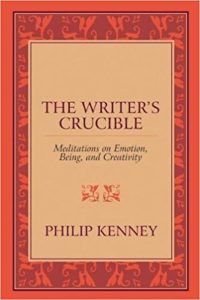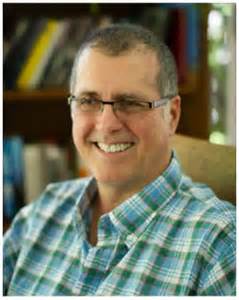The Writer’s Crucible by Phillip Kenney – An Extraordinary Guide to the Writing Life
#writing #Kenney #creativity #psychology

The Writer’s Crucible – Cover
Phillip Kenney knows writing. Radiance, 2013, his courageous first novel is brilliant in its challenges to the conventional. Kenney, the writer, is also a psychotherapist with more than three decades of experience. He brings the insights and wisdom of his profession to bear in all his work but especially in his latest, the delightfully readable “The Writer’s Crucible, Meditations on Emotion, Being, and Creativity.” This exquisitely presented book should be on the shelf of every writer seeking to find inspiration, consolation, or comfort in coping with the challenges of the writer’s life.
Struggling in Two Worlds . . .
Kenney sees writers struggling in two different worlds. First, there are the expectations of our culture, uppermost among which is being strong. Never show weakness. Larger homes, sleeker autos, and other trappings of wealth proclaim success. Acquiring more we believe will draw us closer to securing a “sense of emotional safety and self-worth.” The finish line keeps getting moved, of course, but at least our progress can be measured. Our accumulation of goods, memberships, and degrees constitute what Kenney calls our Self-project, the persona we want the public to see with all the badges of achievement that denote success.

Phil Kenney, Author
The rewards are less tangible but far more frightening for the writer. Those saddled with aspirations to express themselves, to be creative at some endeavor, artistic, literary, or otherwise, often struggle in isolation. No audience cheers them on. No acclaim follows announcing that you are a writer. It’s a matter of how you keep score. Self-Project answers may include critical acclaim, best-seller status, etc., and Kenney insists by invoking these standards, writers will rarely, if ever, find their works “good enough”—a phrase he repeats for emphasis. “Enough?” A relative qualifier, certainly. Or worse, a subjective one accepting input from all quarters including many outside a writer’s consciousness. Even deceased parents can register in from time to time.
The True Self . . .
In opposition to the Project-Self, Kenney sets up the True Self. That’s right. The writer’s most private, most vulnerable, most guarded self. And he invites the writer to open up. It’s enough to strike terror into a consummate extrovert. But Kenney asserts that peering into the special, protected, unique True-Self leads us to discover what is precious and special about us, and paradoxically, helps us see what we have in common with others. Kenney urges creative people to change their reward system. The joys are in the thrill of revelation. Writing becomes a journey in self-discovery. The creative effort frees itself of doubt and other constraints. It becomes play again

John J. Hohn – Writer, ReviewerThe Wrtier’s Crucible
With his premise established, Kenney is at his best leading the reader with humor and insight into how to explore the inner life. His experience as a psychotherapist shines here. He knows the landscape of the psyche. Where the traps are hidden. The dodges and dips of self-sabotaging. Once the reader begins the journey, the intrinsic rewards become more obvious and more compelling. Trust Kenney in the later chapters to guide you step by step, deeper and deeper, into an understanding of how much more rewarding creative life can be.
This is a book to own and keep with in arms reach of your keyboard, easel, or design table. Once you have read it, you will find you can open it to any page and Kenney will be there waiting there with understanding, at your side once again, with the warmth in his caring words and his gentle wisdom on every page.
